“Awareness isn’t protection anymore. It’s curriculum.”
That line lays out Olivia’s thesis, doesn't it? Abusers learn to game the warning signs; so, naturally, we need to learn to game the abuser. Enter Olivia—a 21-year-old freelance researcher, diagnosed psychopath and vigilante.
Olivia is equal parts manifesto, morality play, and comedy... or so they say. Here’s why it deserves a spot on every metaphorical bedside table.
Bold, Unconventional Protagonist
Olivia defies the typical archetypes for women in thrillers. As a woman diagnosed with antisocial personality disorder, she approaches her “missions” with data-driven precision and cold logic. It's an angle rarely seen from women in contemporary fiction.
Typically we see the emotional female lead, or the “for the plot” side-character—Olivia is none of that. Her blend of clinical detachment and self-awareness offers you, dear reader, a refreshing, unsettling lens through which to examine morality and justice.
That said, she still manages to stay relatable.
Razor Sharp Social Commentary
From the moment when Olivia dissects “awareness culture” to expose how public vigilance often backfires, to her analysis of men in power, she continues to provide her thoughts on how modern society enables abusers and fails victims.
The Devil Horror is in the Details
Instead of relying solely on adrenaline-rush set pieces, Olivia’s modus operandi centers on her proprietary RICM (Risk Index Calculation Model). Clever, right?
This framework transforms each encounter into a high-stakes calculation.
Unflinching on Violence
Olivia’s world is as brutal as it is methodical (blurb from chapter 3)
Complex Psychological Depth
I take great pride in my research, and making sure my characters feel ‘real’ or ‘lived’ (?).
Olivia’s internal monologues about emotional pattern recognition (e.g., how 'distress triggers changes in posture, vocal pitch, blink rate') not only add authenticity but invite you to analyze potential threats right along side her.
You also get a chance to see modern myths around antisocial personality disorder debunked.
Moral Ambiguity and Ethical Tension—Whose Side Are You On?
You're continually forced to ask: Is Olivia a vigilante hero or a calculating killer?
When she engineers Gregory Martin’s death, or Mason McCowan’s, it’s impossible to dismiss her actions as purely heroic or purely malicious, right? That tension, in my opinion, fuels thought-provoking conversation
Rich, Immersive Worldbuilding
I’m actually proud of myself here—so yes, I’ll brag.
From recreating a surveillance culture that pushes predators underground to detailing the layout of a local bar or the exact makeup of a covert weapon (e.g., ‘truth serum’) the setting is vivid and intricately textured.
Easy to get lost in—much like the rest of the Void.
Subverting Thriller Tropes
Olivia calculated murders, and Ben’s explosive rage clash, creating a nuanced exploration of violence, and power dynamics.
Emotional Resonance
Despite her diagnosis, Olivia experiences moments of genuine vulnerability, wrapping the story up in a messy, beautiful human bow—not a literal bow made of humans but, like—oh, you get the point.
If None of Those Work
Sometimes I’m funny
So, despite this feeling incredibly brag-y, those are the reasons that you, your friends, your dog, you should all read Olivia.
If those reasons aren’t persuasive enough…would you prefer a ‘please’?
Or a thinly veiled threat (i.e. “it’d be a darn shame if something happened to you before you could give Olivia a read.”)?
I’m open to suggestions.
If you want to show your support for me (or Olivia’s research), you can use any of the links below.
Until the next chapter,
—The Narrator




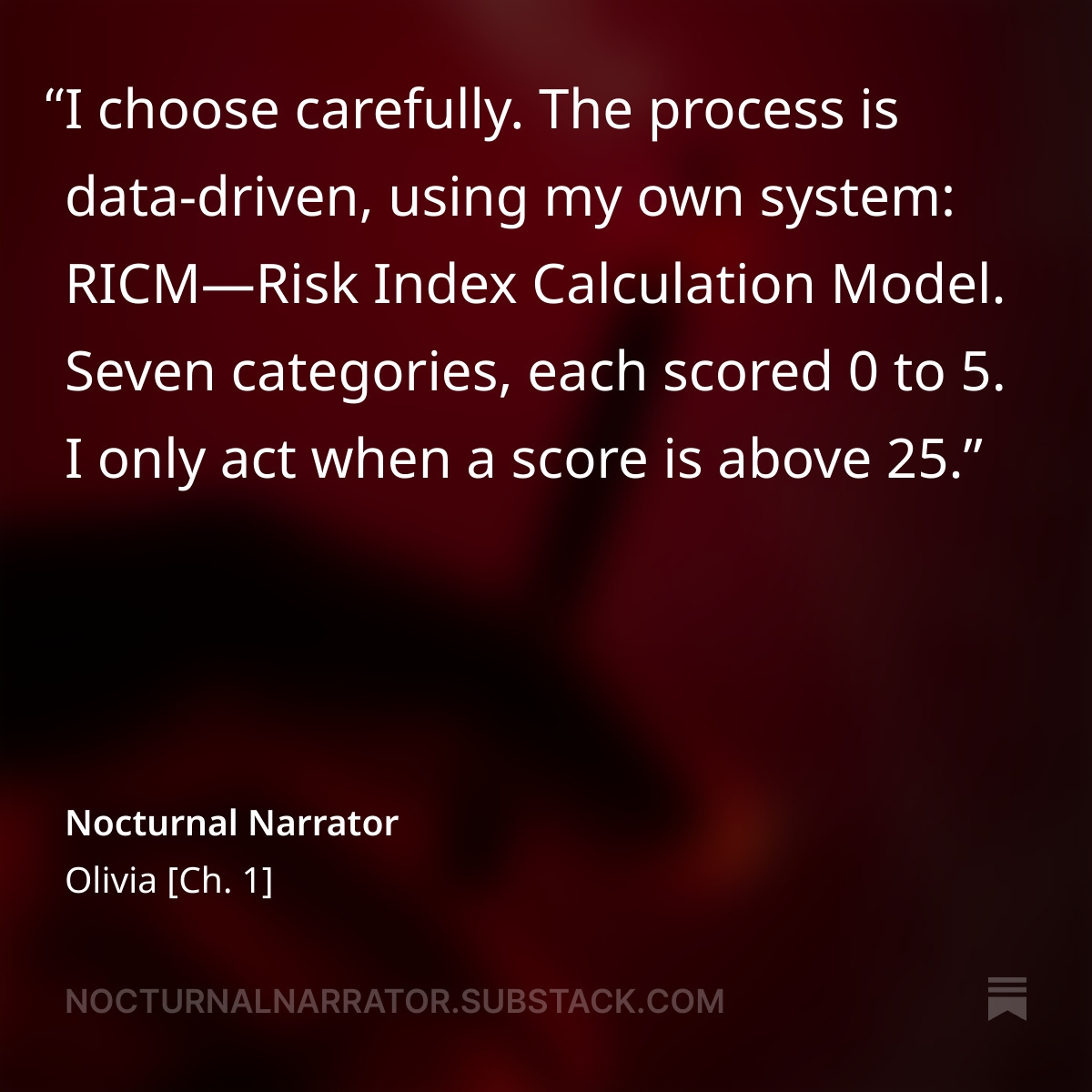
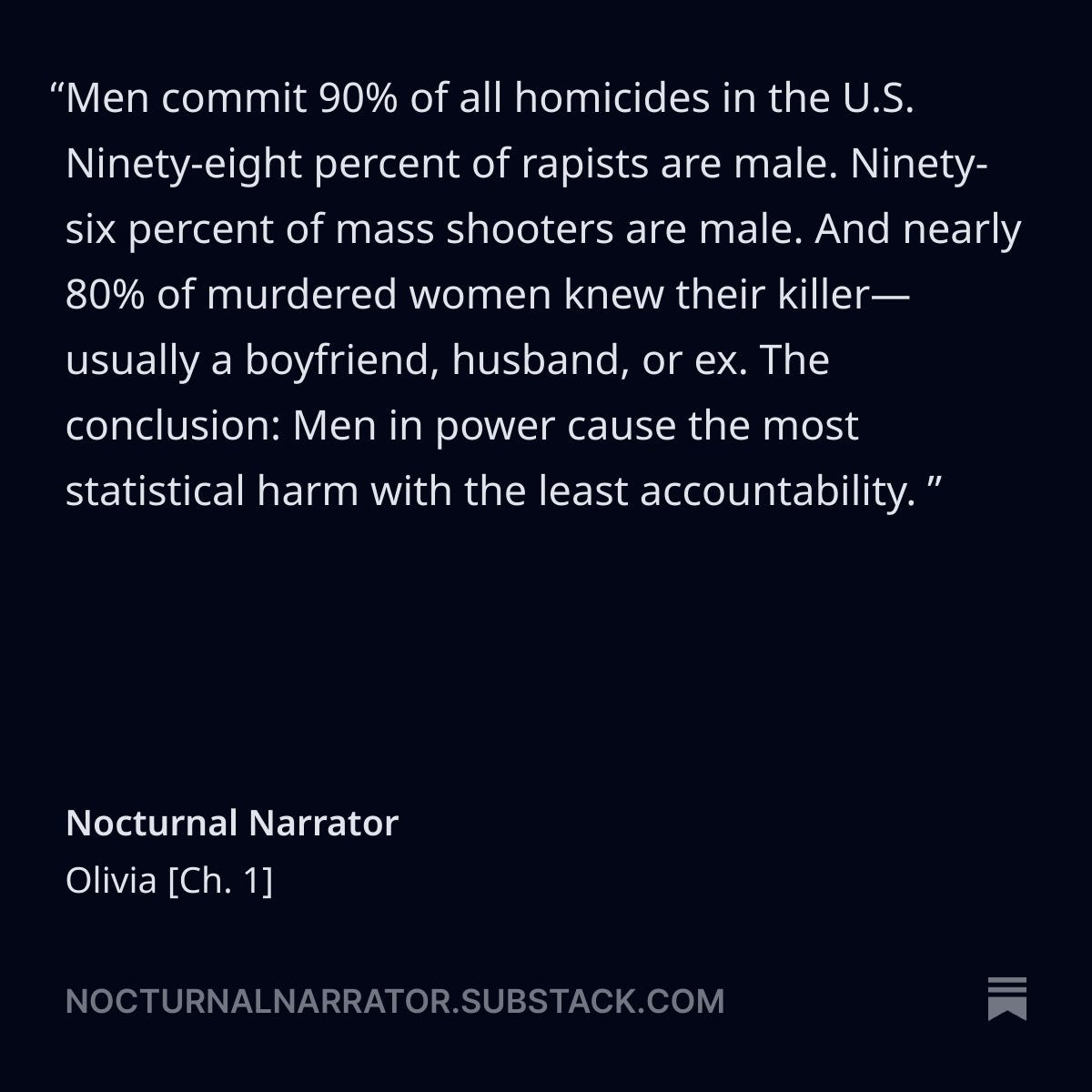
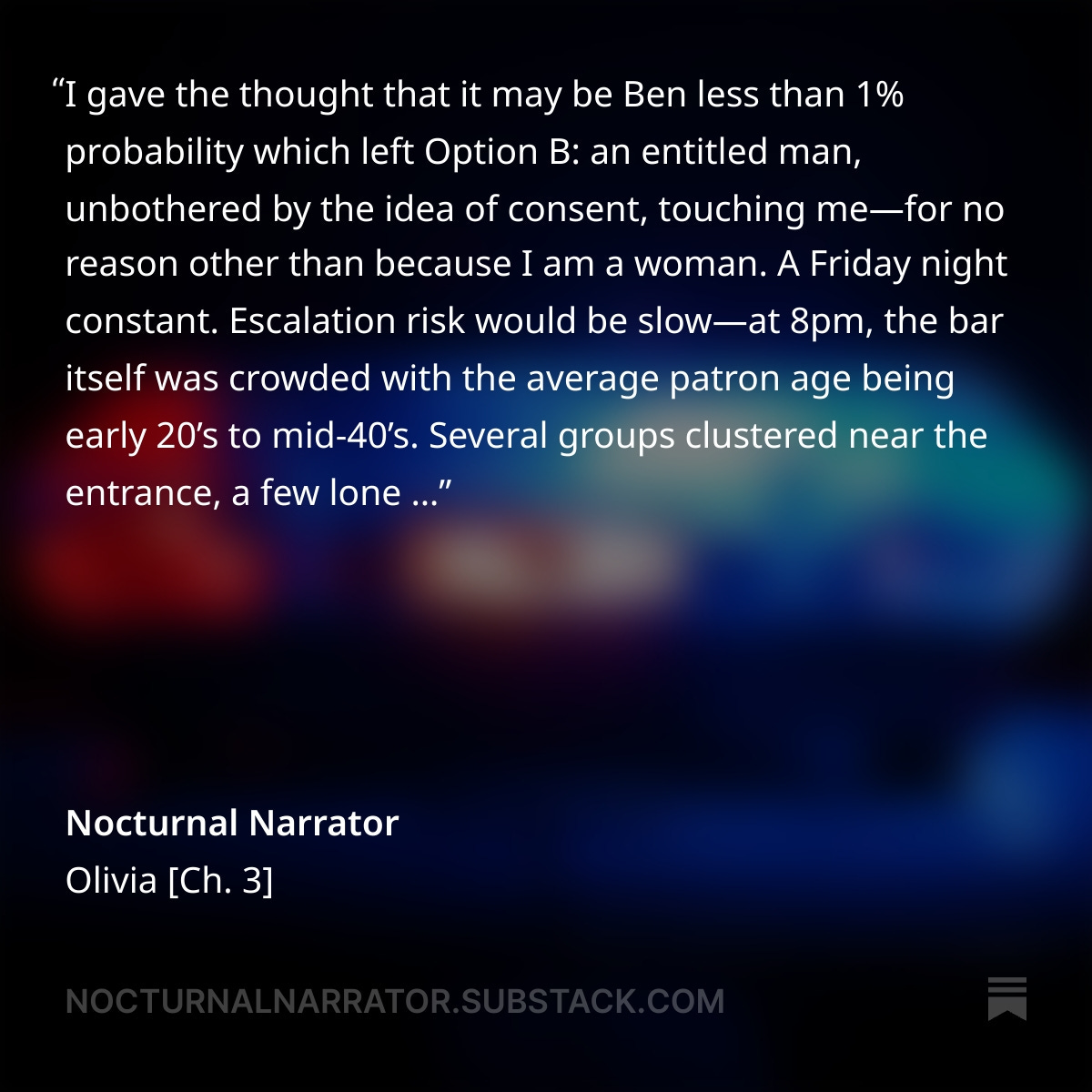
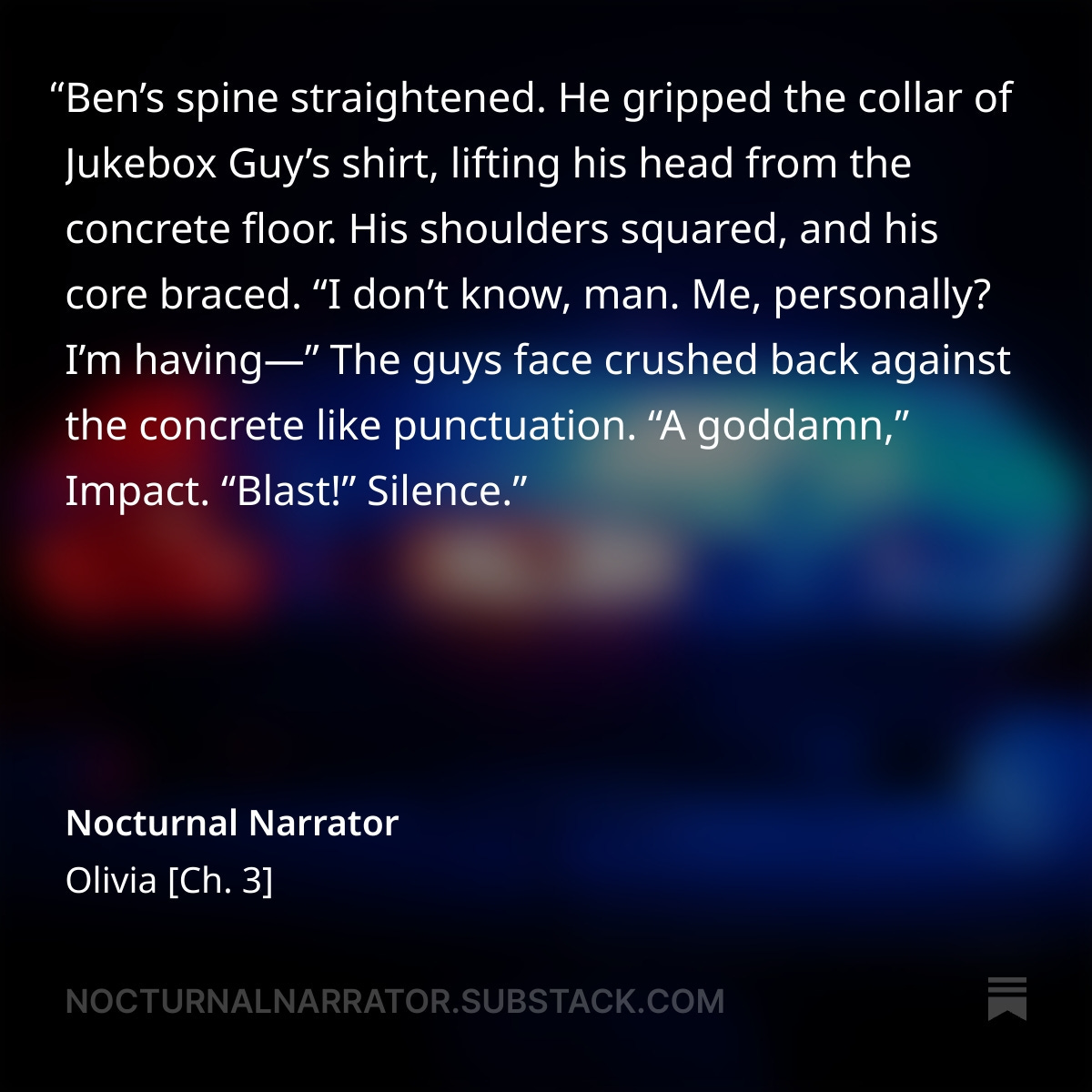
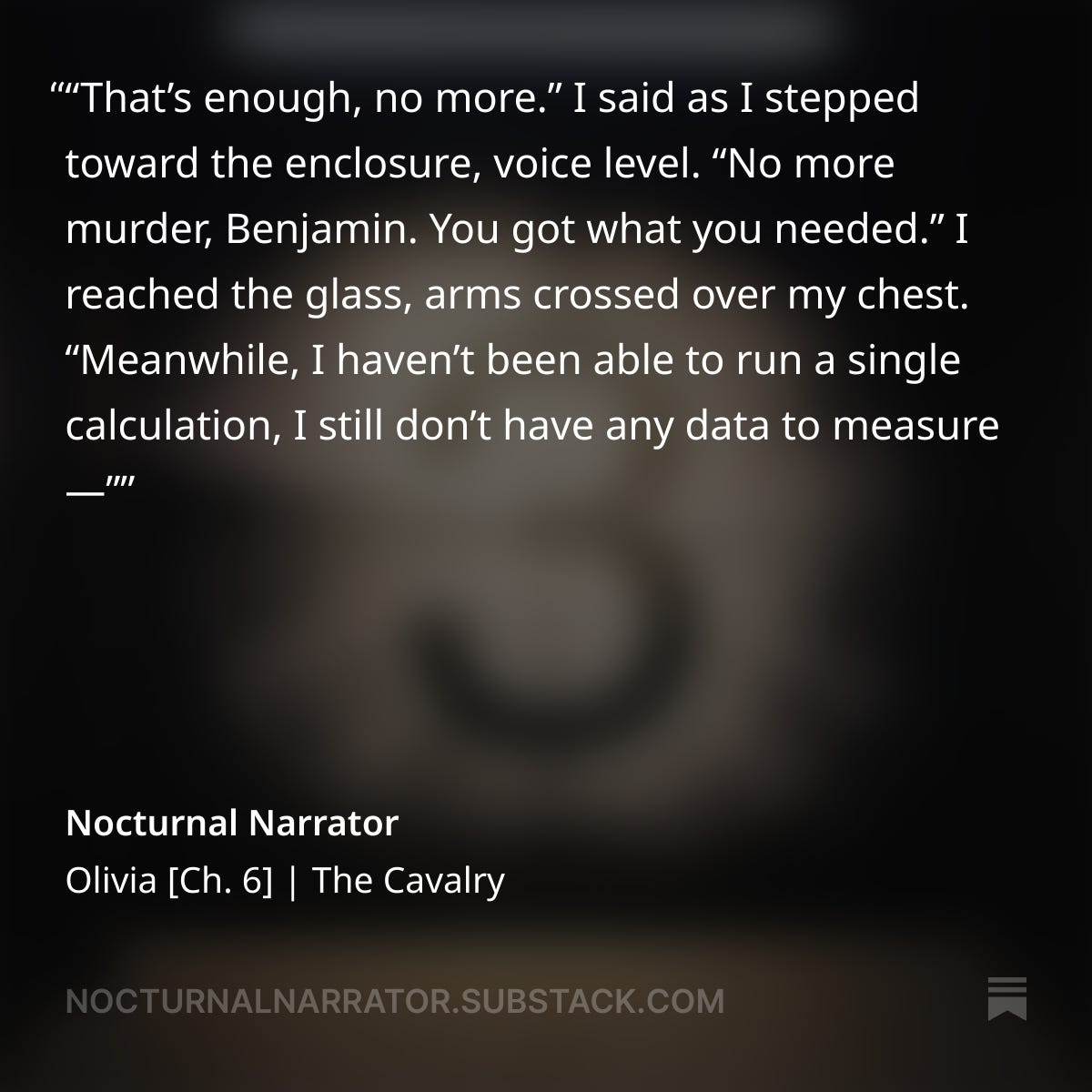
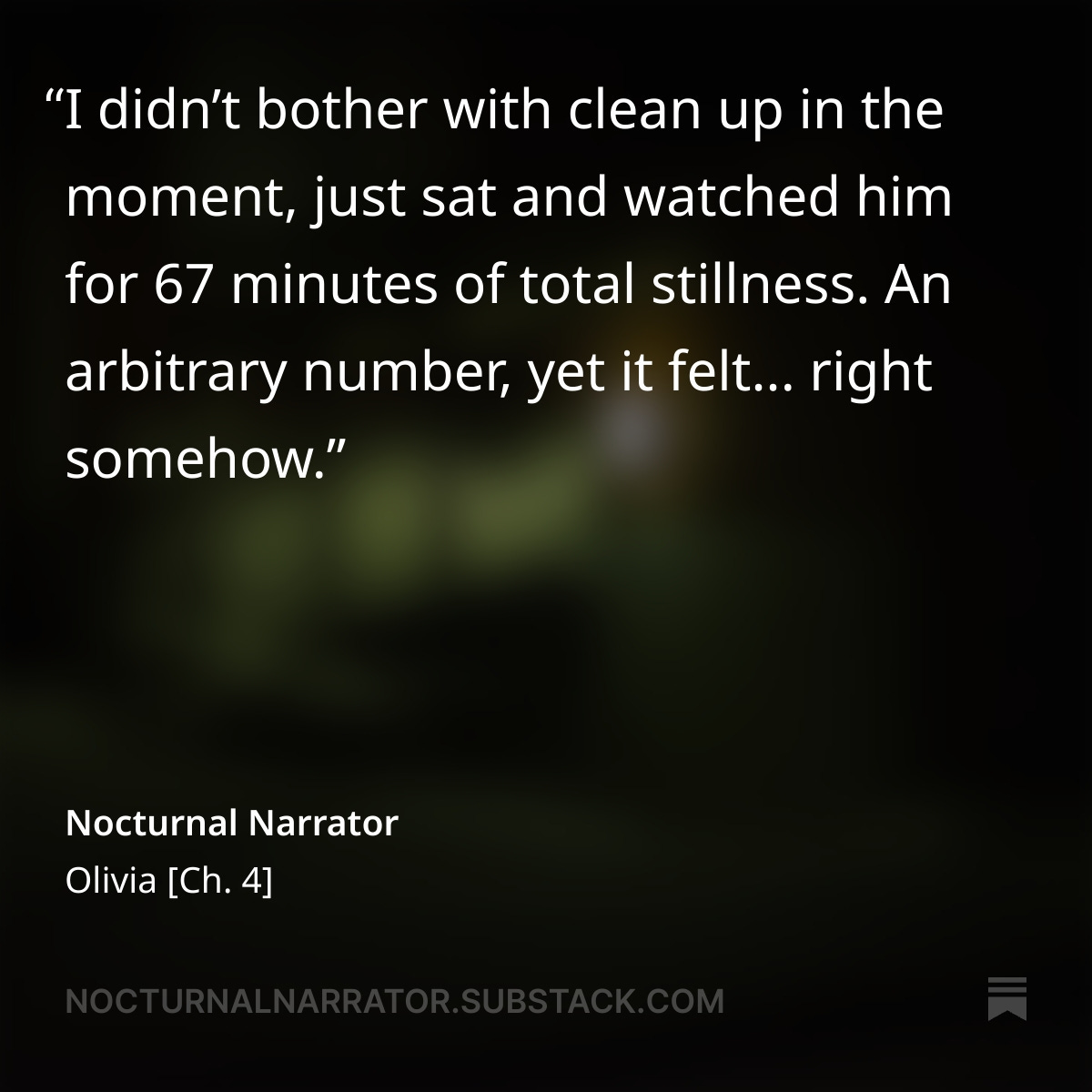
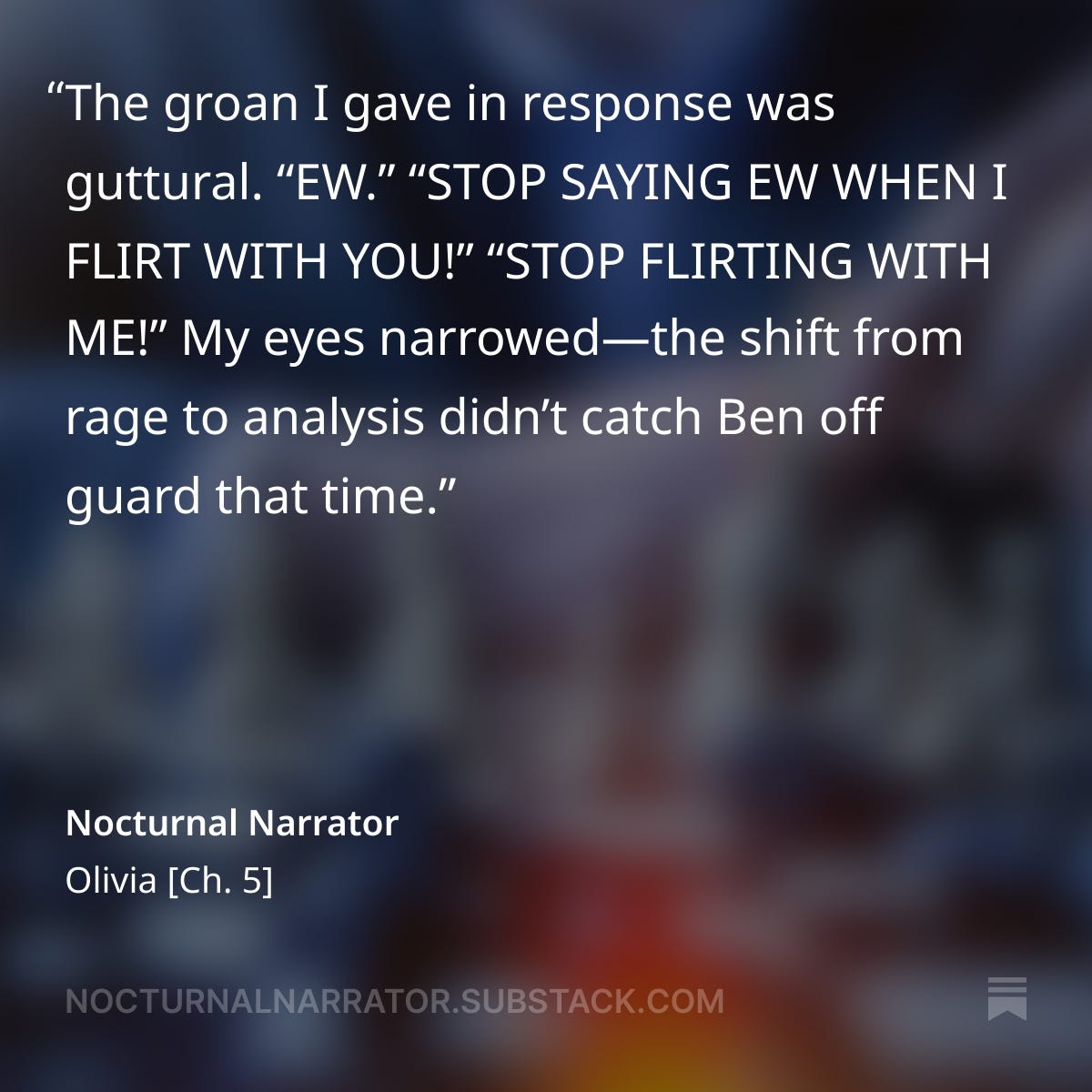
Can someone remind me to read this again when I’m sober.
I wholeheartedly believe everyone should read Olivia but I feel like this might have been deep and important
This week was insane for me and my Sunday was cut short dramatically but I will always make time for a select few and Olivia is one of them.
And this post, by the way extremely well structured—I love it, showed me again why
Your level of research floors me every time and the way you can just shape up a post like this about why to read it and what it is—you know that’s awesome (you’re awesome) and I am once again so very impressed 🥹💛